A Lesson in Strengths and Weaknesses from Harry Potter
Stubborn, independent and self-sufficient. All of these are great attributes – if you are a rogue cowboy or hero in a movie, but I’d contend they are not such great qualities to have in real-life. Now are there strengths to these characteristics? Sure. However strengths overused become weaknesses. Let’s look at one of my favorite characters – Harry Potter (HP)– to see what we learn.
For those of you who don’t know (do I even need to write this?!), Harry Potter was an orphan who learned at age 11 he was a wizard. He took it on himself to find and destroy Voldemort, the evil wizard who killed his parents. He wins. The end. Yay!
Now that we know the plot, let’s look at what we can learn from the character of HP.
HP proved himself stubborn, independent and self-sufficient, in each book, as he ignored school rules, blatantly ignored people’s advice for his well-being, and tried to go solo for most of his adventures. As readers, we loved it. These characteristics made the plot move quickly through delightful and dark moments. We clung to each adventure and cheered HP on. Again, as a character, being these things was okay, but in real-life, HP would likely drive us nuts.
Let’s examine the quality of stubbornness. If we worked with a teammate who was stubborn, we could see the value if it meant we made better decisions. However, overused, stubborn becomes ass. And there’s not many of us who like to work with an ass.
If you feel yourself digging in and pushing back at something, think about why you are feeling that way? Are you being pushed to make a decision? Are you being asked to commit to something that hasn’t been analyzed? It’s okay to speak up, but if you are pushing back because you simply want your own way, the strength has become your weakness.
What about independent? Isn’t that a good quality? Yes, when independence is needed, it’s fantastic. Yet all of us want to work with someone who can interact well with us and with the team. We want people who can function on their own, but who value our opinions.
I find it’s easier and faster to function alone than with a group of people. Yet, if I want engagement and buy-in, I need to let go of my independence and seek advice and input from others. Even HP, ultimately, had friends who reminded him he wasn’t going to fight on his own, and those friends often played integral parts in the success of Voldemort’s downfall.
Doing things on one’s own and being self-sufficient is valued by many cultures, but just as HP needed his friends’ assistance, he needed their talents and skills sets. If we think we can function in a self-sufficient manner, we probably can, but it’s a lot more enjoyable and efficient to utilize the in-born talents and strengths of others on our team rather than force ourselves to be good at something that’s hard for us.
In the HP books, HP’s friend Hermione is the true, logical intellect of the three friends. It’s her ingenuity that often solves a key to their success. Her spells and knowledge are greater than the other two combined. HP needed her and having her on his team made life easier.
Can you go solo and be self-sufficient? Yes. The questions are really: What are you missing by going solo and being self-sufficient? What can you learn from others? How can you value their gifting by including them in your plans?
While I love Harry Potter, I think his greatest strengths become his greatest downfalls. And that’s true for most of us. It’s important to think through your strengths and examine them from the side of usefulness and harmfulness. That’s the charm of Harry Potter. We can learn from him and enjoy his adventure without having to live it.
Keynote speaker, trainer, and consultant, Sarah Gibson, helps organizations leverage the power of communication, teamwork and diversity to improve engagement and transform teams. To buy her book or inquire about her speaking programs, please visit www.sarahjgibson.com.



